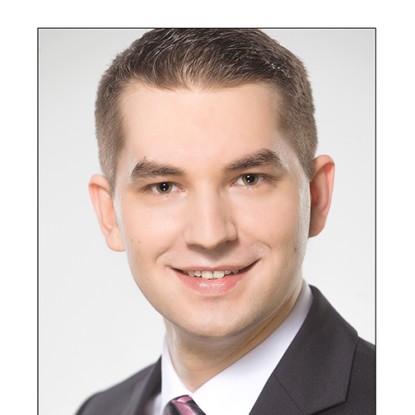
Dr.-Ing. Leonid Glanz
Software Technology Group
Contact
leonid.glanz@tu-...
work +49 6151 16-21368
Work
S2|02 A226
Hochschulstr. 10
64289
Darmstadt
My research interests target reverse engineering for various kinds of detections, including privacy violations (StringHound (opens in new tab)), repackaging (CodeMatch), and libraries (LibDetect).
A common threat for all these detections is obfuscation, because it hides control and data structures by transforming them to unreadable bits and bytes.
My work reverses and restructures the obfuscated code into a machine and human readable form.
Thereby I use different techniques, such as string analysis, static analysis, machine learning, and abstract interpretation.
Teaching
| Term | Courses |
| Winter 2019/20 |
|
| Winter 2018/19 |
|
| Summer 2018 |
|
| Winter 2017/18 |
|
| Winter 2016/17 |
|
| Summer 16 |
|
| Winter 2015/16 |
|
| Summer 2015 |
|
| Winter 2014/15 |
|
Projects
Publications

Error on loading data
An error has occured when loading publications data from TUbiblio. Please try again later.
-
{{ year }}
-
; {{ creator.name.family }}, {{ creator.name.given }}{{ publication.title }}.
; {{ editor.name.family }}, {{ editor.name.given }} (eds.); ; {{ creator }} (Corporate Creator) ({{ publication.date.toString().substring(0,4) }}):
In: {{ publication.series }}, {{ publication.volume }}, In: {{ publication.book_title }}, In: {{ publication.publication }}, {{ publication.journal_volume}} ({{ publication.number }}), ppp. {{ publication.pagerange }}, {{ publication.place_of_pub }}, {{ publication.publisher }}, {{ publication.institution }}, {{ publication.event_title }}, {{ publication.event_location }}, {{ publication.event_dates }}, ISSN {{ publication.issn }}, e-ISSN {{ publication.eissn }}, ISBN {{ publication.isbn }}, DOI: {{ publication.doi.toString().replace('http://','').replace('https://','').replace('dx.doi.org/','').replace('doi.org/','').replace('doi.org','').replace("DOI: ", "").replace("doi:", "") }}, Official URL, {{ labels[publication.type]?labels[publication.type]:publication.type }}, {{ labels[publication.pub_sequence] }}, {{ labels[publication.doc_status] }} - […]
-
Number of items in this list: >{{ publicationsList.length }}
Only the {{publicationsList.length}} latest publications are displayed here.
